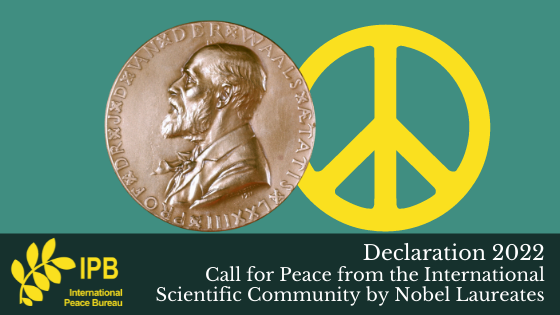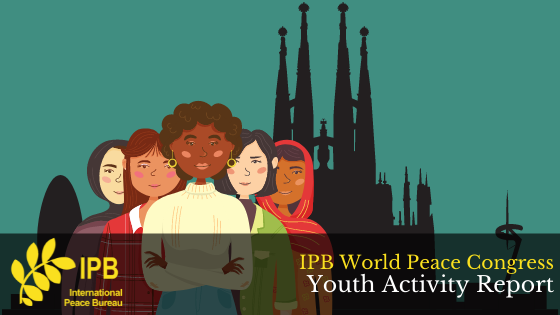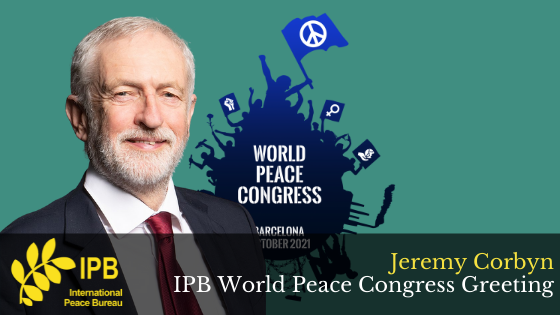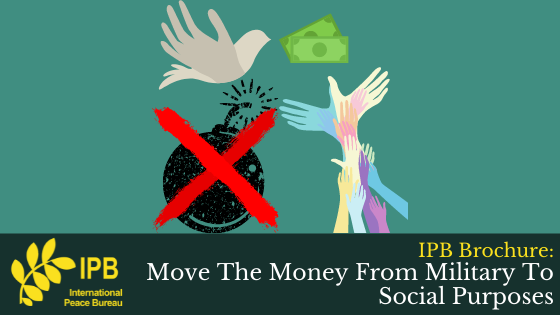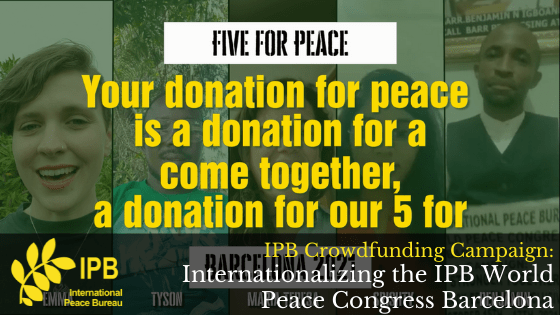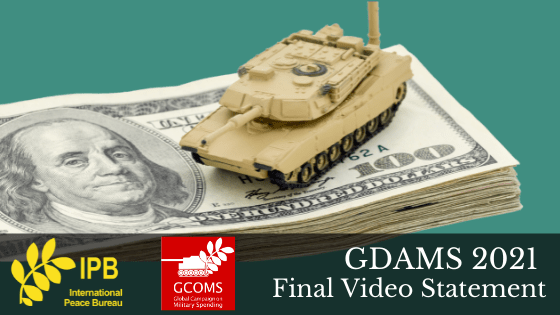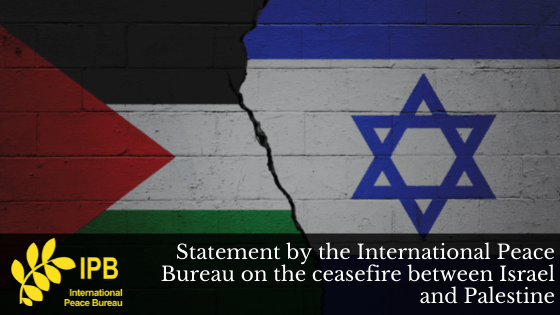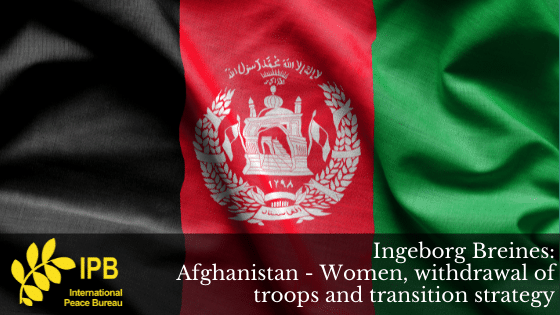In the view of war emanating from Russian soil and the explicit threat of nuclear weapons, we, Nobel laureates in science, economics, and literature, have decided to make this appeal to government leaders.
Continue reading “Declaration 2022 – Call for Peace from the International Scientific Community by Nobel Laureates”Uncategorized
IPB World Peace Congress 2021 Highlights Video
Are you ready to #ReImagineOurWorld again?![]() Under the title “(Re)imagine the world. Action for peace and justice”, more than 2,500 people took part in the Second IPB #WorldPeaceCongress. Watch our highlight video with some of the best moments and get inspired to engage actively in #peace!
Under the title “(Re)imagine the world. Action for peace and justice”, more than 2,500 people took part in the Second IPB #WorldPeaceCongress. Watch our highlight video with some of the best moments and get inspired to engage actively in #peace! ![]()
Joint civil society statement to NPT states parties released
On 10 January 2022, a joint statement endorsed by more than 90 civil society groups worldwide was delivered to the states parties of the nuclear Non-Proliferation Treaty (NPT). The statement built on the one released in 2020, when the NPT’s Tenth Review Conference was first postponed. It was being readied for delivery at the Review Conference, which had been rescheduled for January 2022 and is now postponed again.
To read the statement in full and view a list of endorsing organisations, click here.
A video delivery of the statement can be found here.
IPB World Peace Congress – Youth Activity Report
The Second World Peace Congress in Barcelona was a space for hundreds of youth activists from around the world to speak, lead, discuss and take action for a sustainable peace.
Continue reading “IPB World Peace Congress – Youth Activity Report”
Jeremy Corbyn – IPB World Peace Congress Greeting
Watch Jeremy Corbyn’s uplifting call upon peace workers worldwide to join hands and reimagine our world at the IPB World Peace Congress – October 15-17 in Barcelona.
Continue reading “Jeremy Corbyn – IPB World Peace Congress Greeting”
IPB Brochure: Move The Money From Military To Social Purposes
Based on different reports (e.g. ICAN’s 2021 report, SIPRI Yearbook 2021, the research of the Bulletin of the Atomic Scientists, etc.), the IPB launched the brochure “Move The Money From Military To Social Purposes” in order to provide an overview of the use of nuclear weapons by the World Nuclear Forces. Although the brochure is intended to be informative, the data is used to emphasize the need of reallocating economic resources spent on nuclear weapons development and military to invest them in social
purposes.
To download the brochure click here.
Internationalizing the IPB World Peace Congress Barcelona
The world stands at a historically unique crossroads – either the abyss of nuclear, ecological, and social disaster or a common, just, demilitarized, and environmentally sustainable future. The social and environmental catastrophes reinforced by greed, racism, and sexism are undeniable. But we are not helpless – we can and are mobilising to restore health to our planet.
We are launching a campaign to support the basic costs of these young activists to travel to the World Peace Congress 2021 and to improve our technological capacities to include those who cannot afford to make the journey. While we cannot support travel costs for the entire IPB family, this is our way of making sure we can include the inspiring voices of youth peace activists and to reach a wider global audience.
Donations will go first to the travel and lodging costs for global south youth representatives, estimated to be CHF10,000. Additional funds raised beyond this will contribute to enhancing our technical capacities – technological equipment and personnel to operate and optimize a hybrid event platform enabling Global South participation via plenary speeches, workshops, cultural events, and interactive platform features. Holding a hybrid event will be key to bringing together a truly inclusive Congress.
Find more information and donate here.
GDAMS 2021: Final Video Statement
Watch our final statement on the 2021 Global Days of Action on Military Spending (GDAMS).
Israel and Palestine: From This War a New Peace Process Must Emerge
Yet again we have witnessed a cycle of violence in the Middle East as war has broken out between Israel and Palestine. The hostilities are exacting an unforgiveable human price as the civilian populations were targeted and humanitarian relief to Gaza faces insurmountable obstacles. This disregard for the civilian populations means that we have witnessed crimes against humanity.
Continue reading “Israel and Palestine: From This War a New Peace Process Must Emerge”
Afghanistan: Women, withdrawal of troops and transition strategy
”You may kill a terrorist with a weapon, but you may kill terrorism with education”
Malala Yousafzai, Nobel peace laureate
Women’s Regional Network, WRN, has developed a Statement of Concern on the withdrawal of US, NATO and other foreign troops from Afghanistan. They are concerned about the situation of Afghan women and their future. The Statement consists of seven most valuable points to be taken into consideration in the transition period.
Continue reading “Afghanistan: Women, withdrawal of troops and transition strategy”

